Hosea 10 meaning explained in AI Summary
This chapter continues Hosea's condemnation of Israel's sin and warns of the impending judgment.
1. Israel's Empty Religion (10:1-8):
- Prosperity without Piety: Israel is like a flourishing vine that bears fruit but uses its wealth for idolatry (building altars and pillars) rather than honoring God.
- Divided Loyalty: Their heart is divided between God and idols, leading to hypocritical worship.
- False Security: They trust in their own strength and alliances (with Assyria) instead of relying on God.
- Coming Destruction: Their idols will be destroyed, and their alliances will fail, leaving them vulnerable.
2. Israel's Sin and Punishment (10:9-15):
- Root of the Problem: Their sin dates back to their rebellion at Gibeah (referencing an event in Judges 19-20).
- God's Discipline: God will punish them like a farmer plowing under a rebellious field.
- Call to Repentance: There is still a chance for them to return to God by breaking up their unrepentant hearts and seeking His mercy.
- Consequences of Disobedience: If they continue in their sin, they will face destruction and exile.
Overall Message:
Hosea 10 delivers a powerful message about the emptiness of outward religion without genuine devotion to God. It warns of the severe consequences of idolatry, hypocrisy, and misplaced trust. However, even amidst judgment, there remains a glimmer of hope for repentance and restoration.
Hosea 10 bible study ai commentary
Hosea 10 condemns the Northern Kingdom of Israel for its spiritual corruption, which has festered and grown in direct proportion to its material prosperity. The chapter uses a powerful series of agricultural metaphors—a flourishing but empty vine, plowing wickedness, and sowing for righteousness—to illustrate that Israel has misused God's blessings to fuel idolatry and injustice. This perversion of worship and ethics has sealed its fate: a swift and total judgment from God, delivered by the hand of Assyria, that will annihilate its altars, its king, and its national identity.
Hosea 10 Context
This prophecy was delivered in the final, turbulent years of the Northern Kingdom of Israel (c. 730-722 BCE), just before its conquest by Assyria. After a period of prosperity under Jeroboam II, the nation descended into political chaos with a series of assassinations and short-lived kings. Spiritually, Israel was entrenched in syncretism, officially worshipping Yahweh but through the golden calves at Bethel and Dan, and mixing this with Canaanite fertility rites. Their religious practices were corrupt, their alliances with foreign powers (Egypt and Assyria) were a sign of faithlessness in God, and social injustice was rampant. Hosea's message is a final, urgent warning to a nation on the brink of collapse.
Hosea 10:1
"Israel is a luxuriant vine that yields its fruit. The more his fruit increased, the more altars he built; as his country improved, he improved his pillars."
In-depth-analysis
- A Corrupted Blessing: Israel is depicted as a "luxuriant" or "sprawling vine" (
gephen bōqēq). God's blessing of prosperity did not lead to gratitude and obedience. - Inverse Relationship: Instead, it fueled deeper apostasy. More fruit (wealth, population) led to more altars. More national well-being (
ṭôḇ lᵉ’arṣô) led to more beautiful sacred pillars (maṣṣēḇôṯ). - Materialism Breeds Idolatry: This verse establishes a core theme: Israel credited its prosperity to false gods and used the very wealth God gave them to honor idols. They saw no contradiction in improving their land and improving their idolatrous shrines.
- Pillars (
maṣṣēḇôṯ): These were stone pillars used in Canaanite fertility cults, explicitly forbidden by God. They represented the male deity (often Baal) and were part of the syncretistic worship Israel adopted.
Bible references
- Psalm 80:8-11: "You brought a vine out of Egypt... It sent out its boughs to the Sea..." (Describes Israel as God's cherished vine, providing a stark contrast to Hosea's corrupt vine).
- Isaiah 5:1-2: "My beloved had a vineyard... He looked for it to yield grapes, but it yielded wild grapes." (A parallel parable of God's care for Israel and their resulting corrupt fruit).
- John 15:1-2: "I am the true vine... every branch that does bear fruit he prunes, that it may bear more fruit." (Christ reclaims the vine imagery, showing that true fruitfulness comes from abiding in Him, not from rebellious self-sufficiency).
Cross references
Deut 32:15 (Jeshurun grew fat and kicked); Jer 2:21 (A choice vine turned degenerate); Hos 2:8 (God gave grain and oil used for Baal); 1 Kin 12:28-31 (Origin of the state-sponsored idolatry).
Polemics
This is a direct polemic against Canaanite fertility religions. The people believed that performing rituals at high places, altars, and pillars to Baal would secure agricultural abundance. Hosea counters this by stating that Yahweh is the source of all prosperity, and they have grotesquely misused His gifts to worship impotent idols.
Hosea 10:2
"Their heart is false; now they must bear their guilt. The LORD will break down their altars and destroy their pillars."
In-depth-analysis
- Divided Heart (
ḥālaq libbām): This Hebrew phrase means their heart is "divided," "smooth," or "deceitful." They attempt to worship both Yahweh and idols, but their loyalty is fundamentally fractured and insincere. - Consequence is Inevitable: "Now they must bear their guilt." The time for warnings is passing; the consequence (
’āšam, guilt/punishment) is imminent and unavoidable. - Lex Talionis (an eye for an eye): The objects of their sin will become the objects of God's wrath. The very altars and pillars they multiplied (v. 1) are what God will personally "break down" (
ya‘ărōp, to break the neck of) and destroy.
Bible references
- 1 Kings 18:21: "And Elijah came near to all the people and said, 'How long will you go limping between two different opinions? If the LORD is God, follow him; but if Baal, then follow him.'" (The classic indictment of a divided heart).
- Matthew 6:24: "No one can serve two masters, for either he will hate the one and love the other, or he will be devoted to the one and despise the other." (Jesus articulates the spiritual principle that Israel violated).
- James 1:8: "...he is a double-minded man, unstable in all his ways." (The New Testament diagnosis of the condition Hosea describes).
Cross references
Eze 14:3 (Idols in the heart); Jer 17:9 (The deceitful heart); Psa 78:36-37 (Insincere hearts); 2 Kin 23:15 (Josiah fulfills this by destroying Bethel's altar).
Hosea 10:3-4
"For now they will say: 'We have no king, for we do not fear the LORD; and a king—what could he do for us?' They speak mere words, swearing false oaths and making covenants; so judgment springs up like poisonous weeds in the furrows of the field."
In-depth-analysis
- Realization of Helplessness: The coming judgment will force them to confess their political and spiritual bankruptcy. They will realize their king is powerless and their problems stem from a lack of fear of the LORD.
- Political Anarchy: Their words are empty, their treaties worthless. This reflects the historical chaos of the era, with treaties made and broken with Assyria and Egypt.
- Judgment like Weeds: Justice, which should be a nourishing crop, has become perverted. "Judgment" (
mišpāṭ) here likely refers to lawsuits and legal contention, which now "springs up like poisonous weeds" (rō’š, a bitter, poisonous herb) in the plowed furrows. The systems meant to uphold society are corrupt and destructive.
Bible references
- Deuteronomy 29:18: "Beware lest there be among you... a root bearing poisonous and bitter fruit." (Connects the idea of a corrupt inner state producing poisonous external results).
- Amos 6:12: "...you have turned justice into poison and the fruit of righteousness into wormwood." (A contemporary prophet making a very similar diagnosis of Israel's corrupted social fabric).
Cross references
Hos 13:10-11 (God gave and took away their king in anger); Isa 28:15 (Covenant with death); Amos 5:7 (Those who turn justice to wormwood).
Hosea 10:5-6
"The inhabitants of Samaria tremble for the calf of Beth-aven. Its people mourn for it, and its idolatrous priests wail over it, over its glory, for it has departed from it. The thing itself shall be carried to Assyria as tribute to the great king. Ephraim shall be disgraced; Israel shall be ashamed of his idol."
In-depth-analysis
- Calf of Beth-aven: Hosea mockingly renames Bethel ("House of God") as Beth-aven ("House of Wickedness"). The golden calf, meant to represent Yahweh's power, is now a source of terror (
yāgûrû, to fear/dread). - Glory Departed: The "glory" (
kāḇôḏ) of the idol—its gold, its prestige, its perceived power—is gone. The idol cannot save itself, let alone the people. This mocks the concept that the idol possessed any real glory. - Ultimate Humiliation: The calf idol will be carried off as tribute (
minḥāh) to the king of Assyria, whom Hosea derisively calls "King Jareb" or "the great king" (meleḵ yārēḇ, a contentious/striving king). Israel's god becomes a spoil of war for a pagan king. - Shame of Ephraim: Ephraim (a name for the Northern Kingdom) will be disgraced not by the enemy, but by its own counsel (
mē‘ăṣātô), its decision to create and trust in this idol.
Bible references
- 1 Kings 12:28-29: "So the king took counsel and made two calves of gold... And he set one in Bethel, and the other he put in Dan." (The historical origin of the sin being judged).
- 1 Samuel 4:21-22: "And she named the child Ichabod, saying, 'The glory has departed from Israel!'" (The ark of the covenant's capture by the Philistines provides a historical parallel for the departure of God's true glory, which Israel tragically replaced with a powerless idol).
- Isaiah 46:1-2: "Bel and Nebo stoop, they bow down... they themselves go into captivity." (A prophetic taunt against Babylonian gods who cannot save themselves, mirroring Hosea's taunt).
Cross references
Ex 32:4 (The original golden calf); Jer 48:13 (Moab ashamed of Chemosh); Judg 18:24 (Micah's lament for his stolen idol).
Hosea 10:7-8
"Samaria's king shall be carried off, like a twig on the face of the waters. The high places of Aven, the sin of Israel, shall be destroyed. Thorn and thistle shall grow on their altars, and they shall say to the mountains, 'Cover us,' and to the hills, 'Fall on us.'"
In-depth-analysis
- King Like a Twig: The king of Samaria (the capital) will be utterly powerless, swept away as easily as a splinter (
qeṣep) on water. His demise will be swift and insignificant. - Destruction of Cult Sites: The "high places of Aven" (
bāmôṯ ’āwen) will be destroyed. This is the central infrastructure of Israel's apostasy. Nature itself (thorns and thistles) will reclaim the places of false worship, showing their complete desolation. - Cry for Annihilation: The terror of God's judgment will be so extreme that people will prefer a sudden, violent death under a landslide to facing it. They will wish for total non-existence rather than enduring the wrath they have earned.
Bible references
- Luke 23:30: "Then they will begin to say to the mountains, 'Fall on us,' and to the hills, 'Cover us.'" (Jesus quotes Hosea 10:8 directly on his way to the cross, applying it to the judgment that will fall on Jerusalem for rejecting the Messiah).
- Revelation 6:16: "[They] called to the mountains and rocks, 'Fall on us and hide us from the face of him who is seated on the throne, and from the wrath of the Lamb...'" (The imagery is used to describe the terror of all humanity at the final judgment during the Day of the Lord).
Cross references
Isa 2:19 (People hiding in caves from the Lord's terror); Gen 3:18 (Thorns and thistles as a curse); Lev 26:30 (God's threat to destroy high places).
Hosea 10:9-11
"From the days of Gibeah, you have sinned, O Israel; there they have continued. Shall not war overtake them in Gibeah for their iniquity? When I please, I will discipline them, and nations shall be gathered against them when they are bound for their double iniquity."
In-depth-analysis
- Sin of Gibeah: Hosea reaches back into Israel's history to the horrific events of Judges 19-21 (the rape and murder of the Levite's concubine and the resulting civil war) to establish a benchmark for their sin. He says their sinfulness is not new; it is as deep-seated as that ancient depravity.
- "Bound for their double iniquity": The meaning is debated by scholars. It could refer to:
- The two golden calves (at Bethel and Dan).
- Their political and religious rebellion combined.
- Being "bound to their two furrows," an agricultural image meaning they are yoked to their sins for punishment.
- Heifer Metaphor: Israel is a "trained heifer" (
‘eglāh mᵉlummādāh) that loves the easy work of threshing (stomping on grain, a relatively pleasant task where it could also eat). God had given Israel a pleasant existence. - New Yoke: But because of their sin, God will now place a yoke on her "fair neck." She will be forced into the hard labor of "plowing" and "breaking clods," symbolizing the harsh subjugation and exile under foreign nations (Assyria).
Bible references
- Judges 19-21: The entire narrative provides the grim backdrop for Hosea's "days of Gibeah" reference.
- Jeremiah 50:11: "Because you are glad, because you rejoice, O plunderers of my heritage, because you sport like a heifer at grass and neigh like stallions..." (Uses the heifer imagery for a nation ripe for judgment).
Cross references
Deut 28:48 (Yoke of iron); Lam 1:14 (Yoke of transgressions); Jer 31:18 (An untrained calf).
Hosea 10:12
"Sow for yourselves righteousness; reap steadfast love. Break up your fallow ground, for it is the time to seek the LORD, that he may come and rain righteousness upon you."
In-depth-analysis
- A Call to Repentance: This verse is the pivot point of the chapter. Amidst overwhelming declarations of judgment, God offers a path to restoration through agricultural metaphors.
- Sow Righteousness (
ṣᵉḏāqāh): Live according to God's covenant standards in justice and social equity. - Reap Steadfast Love (
ḥeseḏ): The result of sowing righteousness is to reap God's covenant loyalty, mercy, and faithfulness. - Break up Fallow Ground: A metaphor for softening hard hearts and repenting from old, sinful ways. It is an act of preparing one's heart to receive from God.
- Seek the LORD (
dāraš): This is the central command. It implies a desperate, determined turning back to God in sincerity. - Rain Righteousness: If they seek Him, God will respond by "raining righteousness," a blessing that brings life, restoration, and a right relationship with Him.
Bible references
- 2 Corinthians 9:10: "He who supplies seed to the sower and bread for food will supply and multiply your seed for sowing and increase the harvest of your righteousness." (Paul spiritualizes the agricultural principle of sowing and reaping righteousness).
- Isaiah 55:6: "Seek the LORD while he may be found; call upon him while he is near." (A similar urgent call to seek God before it is too late).
- Jeremiah 4:3: "For thus says the LORD to the men of Judah and Jerusalem: 'Break up your fallow ground, and sow not among thorns.'" (Jeremiah uses the exact same metaphor in his own call to repentance).
Cross references
Gal 6:7-8 (Sowing to the flesh vs. Spirit); Psa 126:5 (Sow in tears, reap in joy); Joel 2:12-13 (Rend your hearts).
Hosea 10:13-14
"You have plowed wickedness; you have reaped injustice; you have eaten the fruit of lies. Because you have trusted in your own way and in the multitude of your mighty men, therefore the tumult of war shall arise among your people, and all your fortresses shall be destroyed, as Shalman destroyed Beth-arbel on the day of battle; mothers were dashed in pieces with their children."
In-depth-analysis
- The Inverted Principle: This is the dark antithesis of verse 12. Israel rejected God's way and chose to "plow wickedness" (
reša‘). - Consequences of Sin: The harvest matches the seed: they reaped injustice (
‘avlāṯāh), and the food that sustained them was the "fruit of lies" (pᵉrî-ḵaḥaš)—the false promises of idols and foreign alliances. - The Root of the Sin: Their fatal flaw was self-reliance: trust in "your own way" (military strategy and political maneuvering) and "the multitude of your mighty men." They trusted their strength instead of the LORD.
- Historical Example of Brutality: The judgment will be horrifically violent. Hosea cites a contemporary event, the destruction of Beth-arbel by Shalman (likely Shalmaneser V of Assyria, who besieged Samaria), known for its extreme brutality where mothers and children were slaughtered. This was not an abstract threat; it was a recent, vivid memory used to show what was coming for all of them.
Bible references
- Galatians 6:7-8: "Do not be deceived: God is not mocked, for whatever one sows, that will he also reap. For the one who sows to his own flesh will from the flesh reap corruption..." (The clearest NT articulation of the principle in Hosea 10:12-13).
- Proverbs 1:31: "...therefore they shall eat the fruit of their way, and have their fill of their own devices." (Wisdom literature affirming the same truth: our choices have consequences).
- Psalm 20:7: "Some trust in chariots and some in horses, but we trust in the name of the LORD our God." (The principle of trust that Israel violated).
Cross references
Job 4:8 (Those who plow iniquity reap the same); Prov 22:8 (Sows injustice will reap calamity); Isa 31:1 (Woe to those who rely on Egypt's horses).
Hosea 10:15
"Thus it shall be done to you, O Bethel, because of your great wickedness. At dawn the king of Israel shall be utterly cut off."
In-depth-analysis
- Bethel as the Source: The judgment is directed at Bethel specifically. While Samaria was the political capital, Bethel was the spiritual center of the apostasy. It was the source of their "great wickedness" (
ra‘aṯ kal-rō‘aṯḵem, literally the evil of your evil). - The King's End: The destruction will be swift and final. "At dawn," a time of new beginnings, will instead be the moment of absolute end for the monarchy of the Northern Kingdom. The king will be "utterly cut off" (
nidmōh yiddāmeh, a strong double verb form meaning completely silenced/destroyed). This prophecy was fulfilled with the capture and exile of King Hoshea by the Assyrians.
Bible references
- 2 Kings 17:4-6: "But the king of Assyria found treachery in Hoshea... and shut him up in prison. Then the king of Assyria... captured Samaria, and he carried the Israelites away to Assyria." (The historical fulfillment of the end of the king and the nation).
- Amos 7:11: "For thus Amos has said, ‘Jeroboam shall die by the sword, and Israel must go into exile away from his land.’” (Amos prophesied the same fate for the king and kingdom earlier).
Cross references
Hos 13:11 (King given in anger, taken away in wrath); Isa 17:3 (The fortress will disappear from Ephraim).
Hosea chapter 10 analysis
- Agricultural Metaphor as a Unifying Structure: The chapter is built around a coherent set of agricultural images: the vine (v. 1), weeds of judgment (v. 4), thorns on altars (v. 8), the heifer (v. 11), and the call to sow righteousness versus the reality of plowing wickedness (vv. 12-13). This framework connects the life of the land, which God gives, to the spiritual life of the people, which they have corrupted.
- Prosperity as a Spiritual Test: Hosea 10 presents a profound theology where prosperity is not a sign of righteousness but a test of faithfulness. Israel failed this test catastrophically, using God-given wealth to build a society that dishonored him.
- The Idolatry of Self-Reliance: The core sin is not just bowing to a calf idol but the trust in human systems that the idol represents: their king (v. 3), their treaties (v. 4), their military might (v. 13), and their own counsel (v. 6).
- Sin has a History: By referencing the sin of Gibeah (v. 9), Hosea argues that Israel's corruption is not a recent development but a deep-seated, historical trajectory of rebellion that has now reached its endpoint.
Hosea 10 summary
Israel, a once-fruitful vine, used its God-given prosperity to cultivate a harvest of idolatry, injustice, and faithless alliances. Hosea pronounces God's judgment using powerful agricultural and historical metaphors: Israel, like an untrained heifer, will be yoked for the hard labor of exile. Their corrupt institutions—from the altars at Bethel to the monarchy itself—will be utterly destroyed. Amid the verdict, a single verse (v.12) shines as a final, desperate call to "break up fallow ground" and seek the LORD before the catastrophic judgment, foreshadowed by the brutality at Beth-arbel, arrives with the dawn.
Hosea 10 AI Image Audio and Video

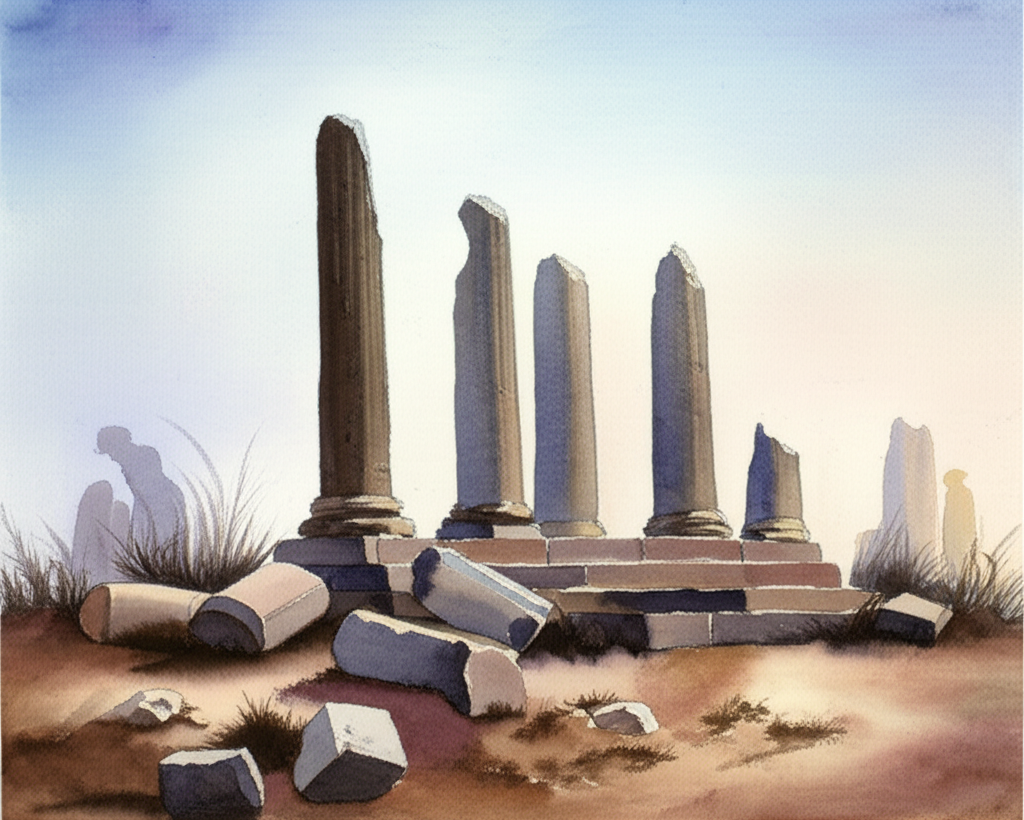
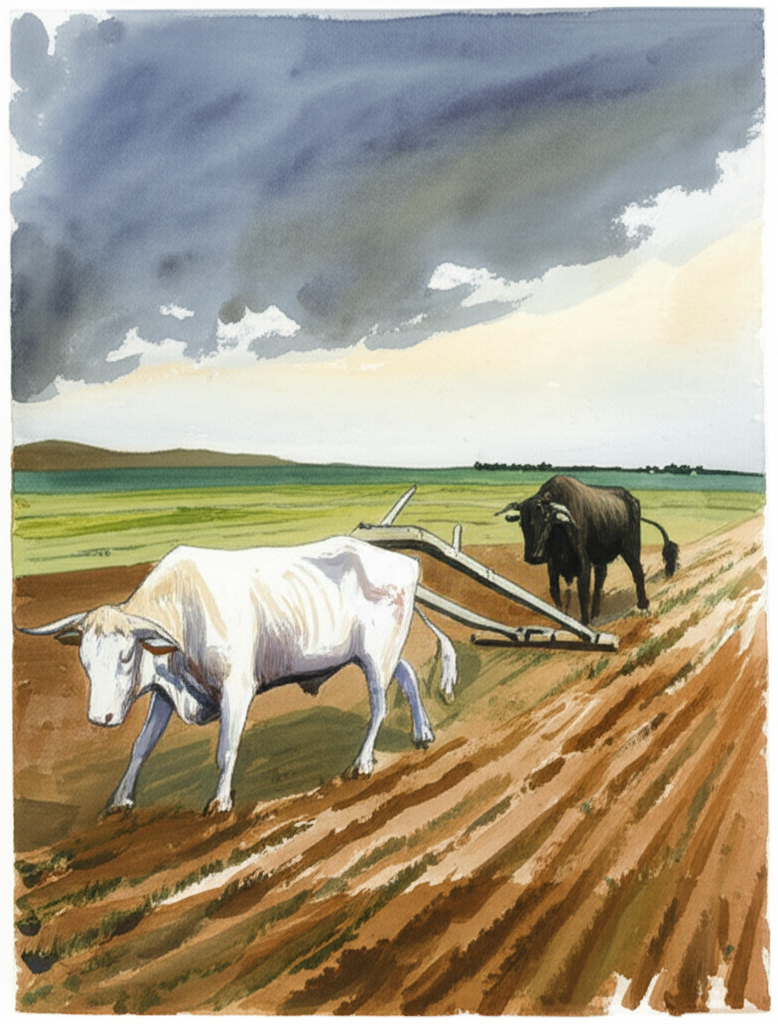
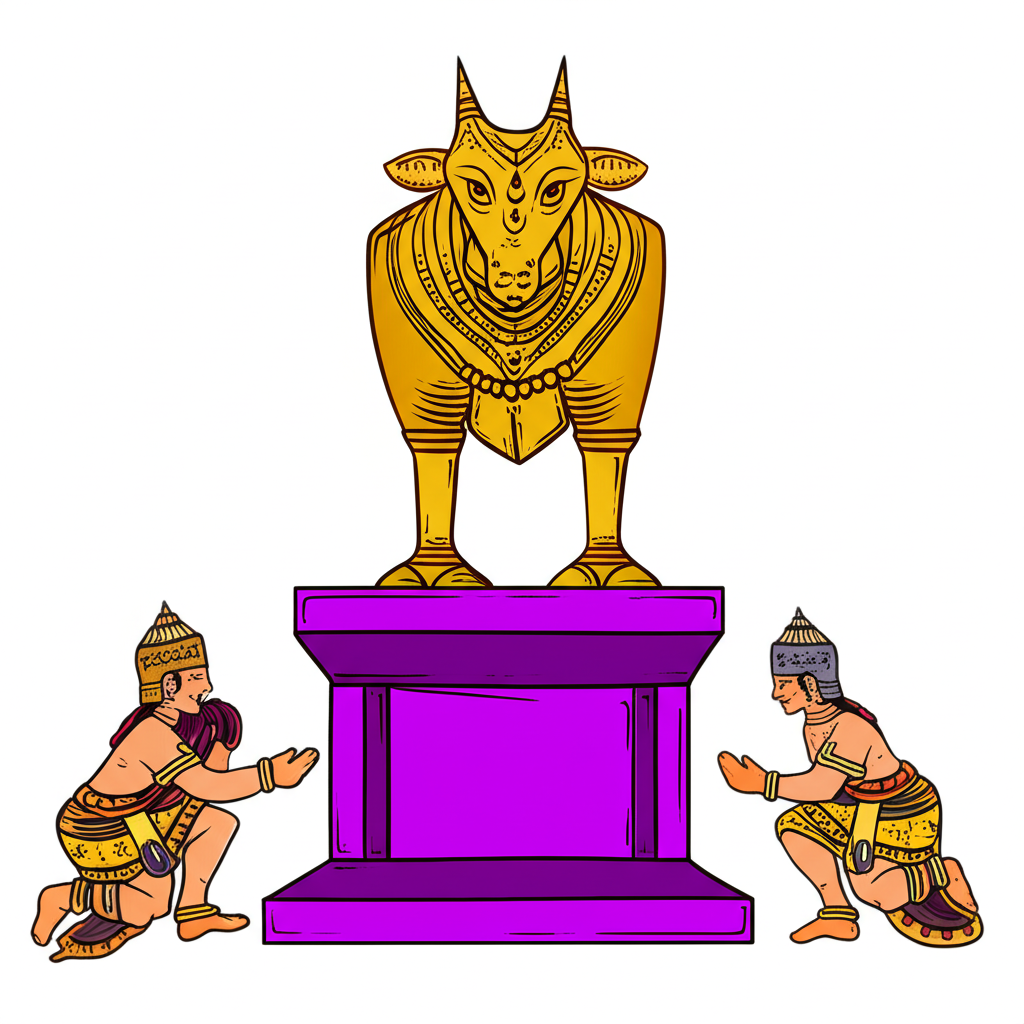
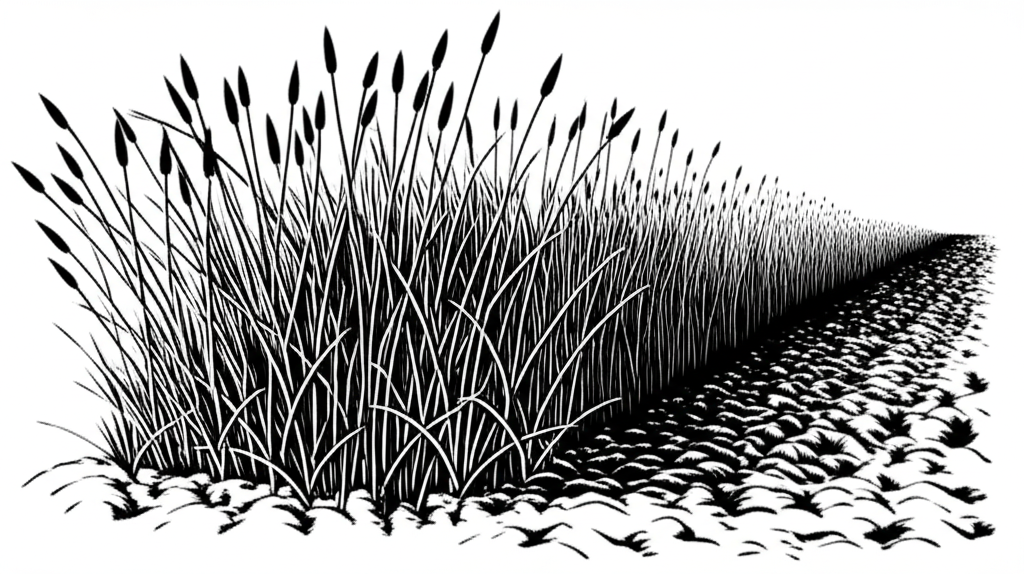
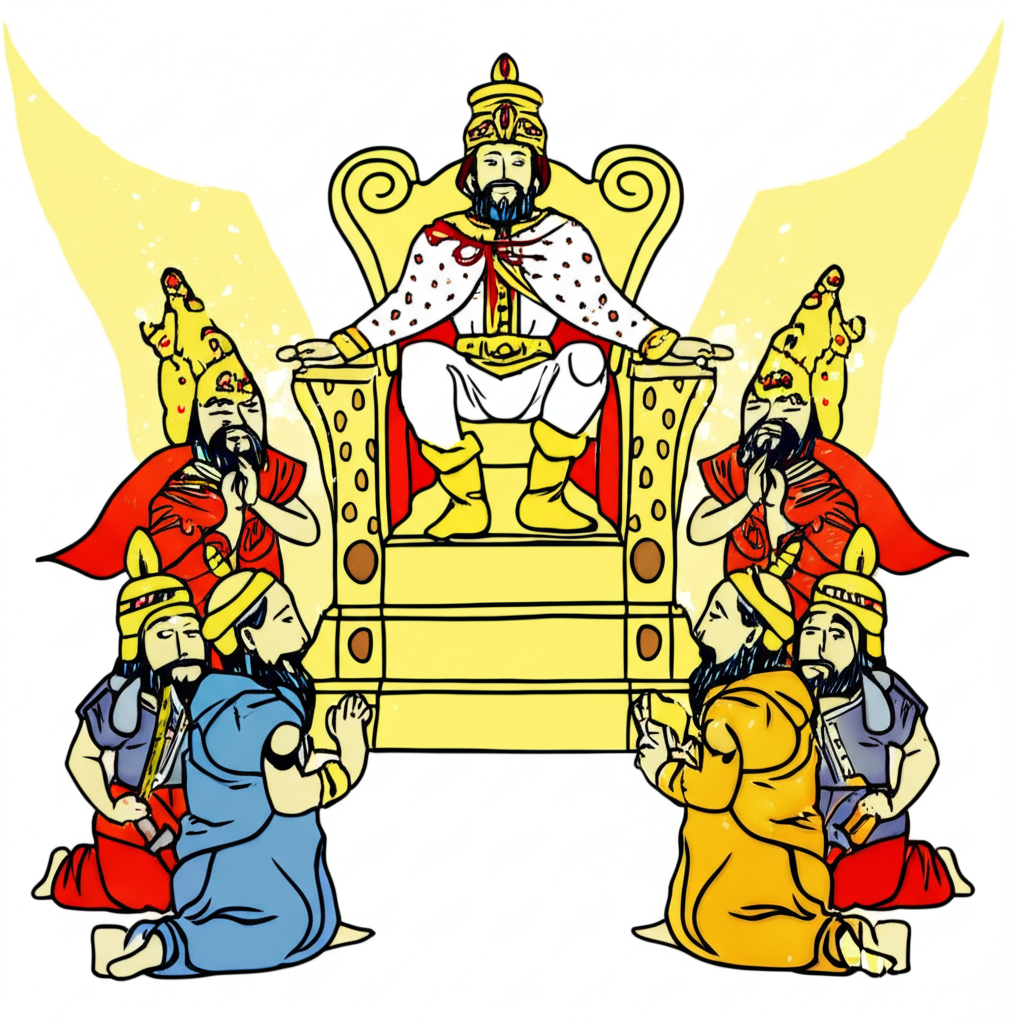
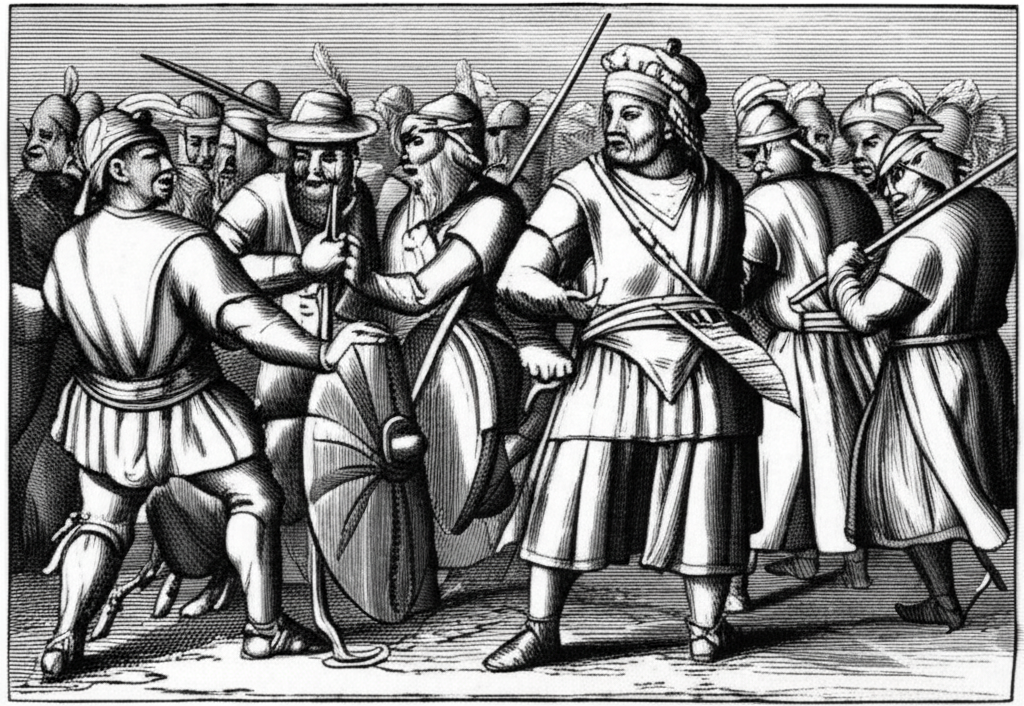
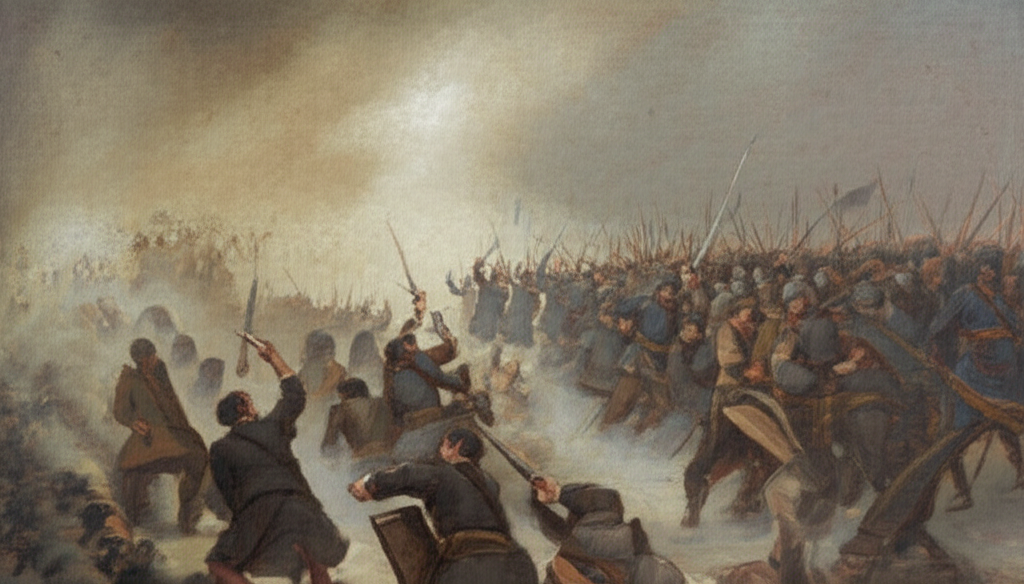
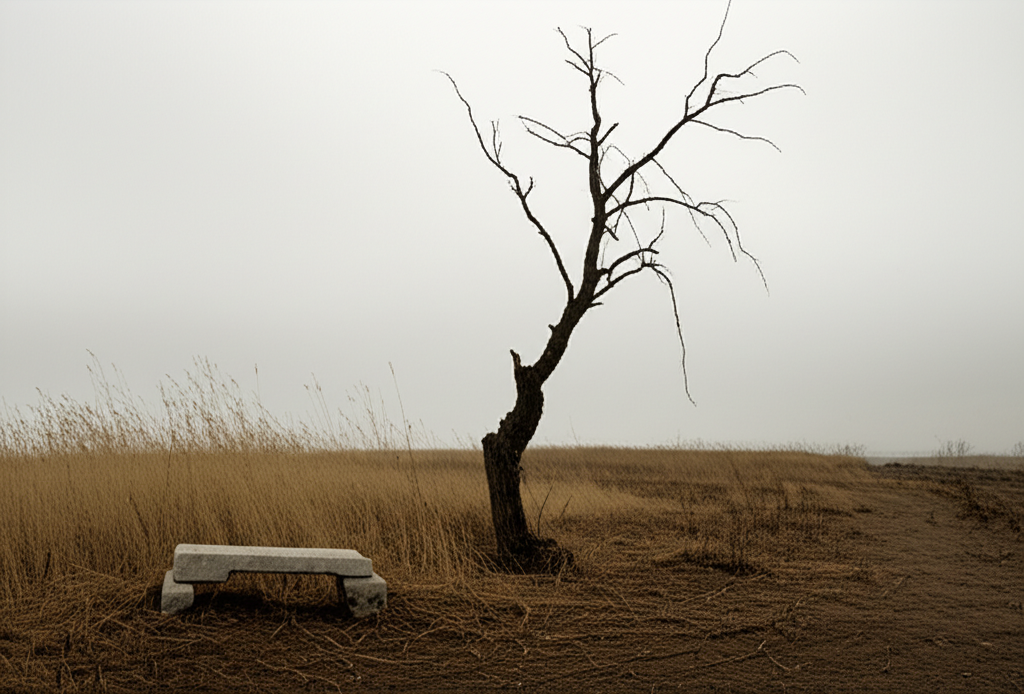
Hosea chapter 10 kjv
- 1 Israel is an empty vine, he bringeth forth fruit unto himself: according to the multitude of his fruit he hath increased the altars; according to the goodness of his land they have made goodly images.
- 2 Their heart is divided; now shall they be found faulty: he shall break down their altars, he shall spoil their images.
- 3 For now they shall say, We have no king, because we feared not the LORD; what then should a king do to us?
- 4 They have spoken words, swearing falsely in making a covenant: thus judgment springeth up as hemlock in the furrows of the field.
- 5 The inhabitants of Samaria shall fear because of the calves of Bethaven: for the people thereof shall mourn over it, and the priests thereof that rejoiced on it, for the glory thereof, because it is departed from it.
- 6 It shall be also carried unto Assyria for a present to king Jareb: Ephraim shall receive shame, and Israel shall be ashamed of his own counsel.
- 7 As for Samaria, her king is cut off as the foam upon the water.
- 8 The high places also of Aven, the sin of Israel, shall be destroyed: the thorn and the thistle shall come up on their altars; and they shall say to the mountains, Cover us; and to the hills, Fall on us.
- 9 O Israel, thou hast sinned from the days of Gibeah: there they stood: the battle in Gibeah against the children of iniquity did not overtake them.
- 10 It is in my desire that I should chastise them; and the people shall be gathered against them, when they shall bind themselves in their two furrows.
- 11 And Ephraim is as an heifer that is taught, and loveth to tread out the corn; but I passed over upon her fair neck: I will make Ephraim to ride; Judah shall plow, and Jacob shall break his clods.
- 12 Sow to yourselves in righteousness, reap in mercy; break up your fallow ground: for it is time to seek the LORD, till he come and rain righteousness upon you.
- 13 Ye have plowed wickedness, ye have reaped iniquity; ye have eaten the fruit of lies: because thou didst trust in thy way, in the multitude of thy mighty men.
- 14 Therefore shall a tumult arise among thy people, and all thy fortresses shall be spoiled, as Shalman spoiled Betharbel in the day of battle: the mother was dashed in pieces upon her children.
- 15 So shall Bethel do unto you because of your great wickedness: in a morning shall the king of Israel utterly be cut off.
Hosea chapter 10 nkjv
- 1 Israel empties his vine; He brings forth fruit for himself. According to the multitude of his fruit He has increased the altars; According to the bounty of his land They have embellished his sacred pillars.
- 2 Their heart is divided; Now they are held guilty. He will break down their altars; He will ruin their sacred pillars.
- 3 For now they say, "We have no king, Because we did not fear the LORD. And as for a king, what would he do for us?"
- 4 They have spoken words, Swearing falsely in making a covenant. Thus judgment springs up like hemlock in the furrows of the field.
- 5 The inhabitants of Samaria fear Because of the calf of Beth Aven. For its people mourn for it, And its priests shriek for it? Because its glory has departed from it.
- 6 The idol also shall be carried to Assyria As a present for King Jareb. Ephraim shall receive shame, And Israel shall be ashamed of his own counsel.
- 7 As for Samaria, her king is cut off Like a twig on the water.
- 8 Also the high places of Aven, the sin of Israel, Shall be destroyed. The thorn and thistle shall grow on their altars; They shall say to the mountains, "Cover us!" And to the hills, "Fall on us!"
- 9 "O Israel, you have sinned from the days of Gibeah; There they stood. The battle in Gibeah against the children of iniquity Did not overtake them.
- 10 When it is My desire, I will chasten them. Peoples shall be gathered against them When I bind them for their two transgressions.
- 11 Ephraim is a trained heifer That loves to thresh grain; But I harnessed her fair neck, I will make Ephraim pull a plow. Judah shall plow; Jacob shall break his clods."
- 12 Sow for yourselves righteousness; Reap in mercy; Break up your fallow ground, For it is time to seek the LORD, Till He comes and rains righteousness on you.
- 13 You have plowed wickedness; You have reaped iniquity. You have eaten the fruit of lies, Because you trusted in your own way, In the multitude of your mighty men.
- 14 Therefore tumult shall arise among your people, And all your fortresses shall be plundered As Shalman plundered Beth Arbel in the day of battle? A mother dashed in pieces upon her children.
- 15 Thus it shall be done to you, O Bethel, Because of your great wickedness. At dawn the king of Israel Shall be cut off utterly.
Hosea chapter 10 niv
- 1 Israel was a spreading vine; he brought forth fruit for himself. As his fruit increased, he built more altars; as his land prospered, he adorned his sacred stones.
- 2 Their heart is deceitful, and now they must bear their guilt. The LORD will demolish their altars and destroy their sacred stones.
- 3 Then they will say, "We have no king because we did not revere the LORD. But even if we had a king, what could he do for us?"
- 4 They make many promises, take false oaths and make agreements; therefore lawsuits spring up like poisonous weeds in a plowed field.
- 5 The people who live in Samaria fear for the calf-idol of Beth Aven. Its people will mourn over it, and so will its idolatrous priests, those who had rejoiced over its splendor, because it is taken from them into exile.
- 6 It will be carried to Assyria as tribute for the great king. Ephraim will be disgraced; Israel will be ashamed of its foreign alliances.
- 7 Samaria's king will be destroyed, swept away like a twig on the surface of the waters.
- 8 The high places of wickedness will be destroyed? it is the sin of Israel. Thorns and thistles will grow up and cover their altars. Then they will say to the mountains, "Cover us!" and to the hills, "Fall on us!"
- 9 "Since the days of Gibeah, you have sinned, Israel, and there you have remained. Will not war again overtake the evildoers in Gibeah?
- 10 When I please, I will punish them; nations will be gathered against them to put them in bonds for their double sin.
- 11 Ephraim is a trained heifer that loves to thresh; so I will put a yoke on her fair neck. I will drive Ephraim, Judah must plow, and Jacob must break up the ground.
- 12 Sow righteousness for yourselves, reap the fruit of unfailing love, and break up your unplowed ground; for it is time to seek the LORD, until he comes and showers his righteousness on you.
- 13 But you have planted wickedness, you have reaped evil, you have eaten the fruit of deception. Because you have depended on your own strength and on your many warriors,
- 14 the roar of battle will rise against your people, so that all your fortresses will be devastated? as Shalman devastated Beth Arbel on the day of battle, when mothers were dashed to the ground with their children.
- 15 So will it happen to you, Bethel, because your wickedness is great. When that day dawns, the king of Israel will be completely destroyed.
Hosea chapter 10 esv
- 1 Israel is a luxuriant vine that yields its fruit. The more his fruit increased, the more altars he built; as his country improved, he improved his pillars.
- 2 Their heart is false; now they must bear their guilt. The LORD will break down their altars and destroy their pillars.
- 3 For now they will say: "We have no king, for we do not fear the LORD; and a king ? what could he do for us?"
- 4 They utter mere words; with empty oaths they make covenants; so judgment springs up like poisonous weeds in the furrows of the field.
- 5 The inhabitants of Samaria tremble for the calf of Beth-aven. Its people mourn for it, and so do its idolatrous priests ? those who rejoiced over it and over its glory ? for it has departed from them.
- 6 The thing itself shall be carried to Assyria as tribute to the great king. Ephraim shall be put to shame, and Israel shall be ashamed of his idol.
- 7 Samaria's king shall perish like a twig on the face of the waters.
- 8 The high places of Aven, the sin of Israel, shall be destroyed. Thorn and thistle shall grow up on their altars, and they shall say to the mountains, "Cover us," and to the hills, "Fall on us."
- 9 From the days of Gibeah, you have sinned, O Israel; there they have continued. Shall not the war against the unjust overtake them in Gibeah?
- 10 When I please, I will discipline them, and nations shall be gathered against them when they are bound up for their double iniquity.
- 11 Ephraim was a trained calf that loved to thresh, and I spared her fair neck; but I will put Ephraim to the yoke; Judah must plow; Jacob must harrow for himself.
- 12 Sow for yourselves righteousness; reap steadfast love; break up your fallow ground, for it is the time to seek the LORD, that he may come and rain righteousness upon you.
- 13 You have plowed iniquity; you have reaped injustice; you have eaten the fruit of lies. Because you have trusted in your own way and in the multitude of your warriors,
- 14 therefore the tumult of war shall arise among your people, and all your fortresses shall be destroyed, as Shalman destroyed Beth-arbel on the day of battle; mothers were dashed in pieces with their children.
- 15 Thus it shall be done to you, O Bethel, because of your great evil. At dawn the king of Israel shall be utterly cut off.
Hosea chapter 10 nlt
- 1 How prosperous Israel is ?
a luxuriant vine loaded with fruit.
But the richer the people get,
the more pagan altars they build.
The more bountiful their harvests,
the more beautiful their sacred pillars. - 2 The hearts of the people are fickle;
they are guilty and must be punished.
The LORD will break down their altars
and smash their sacred pillars. - 3 Then they will say, "We have no king
because we didn't fear the LORD.
But even if we had a king,
what could he do for us anyway?" - 4 They spout empty words
and make covenants they don't intend to keep.
So injustice springs up among them
like poisonous weeds in a farmer's field. - 5 The people of Samaria tremble in fear
for their calf idol at Beth-aven,
and they mourn for it.
Though its priests rejoice over it,
its glory will be stripped away. - 6 This idol will be carted away to Assyria,
a gift to the great king there.
Ephraim will be ridiculed and Israel will be shamed,
because its people have trusted in this idol. - 7 Samaria and its king will be cut off;
they will float away like driftwood on an ocean wave. - 8 And the pagan shrines of Aven, the place of Israel's sin, will crumble.
Thorns and thistles will grow up around their altars.
They will beg the mountains, "Bury us!"
and plead with the hills, "Fall on us!" - 9 The LORD says, "O Israel, ever since Gibeah,
there has been only sin and more sin!
You have made no progress whatsoever.
Was it not right that the wicked men of Gibeah were attacked? - 10 Now whenever it fits my plan,
I will attack you, too.
I will call out the armies of the nations
to punish you for your multiplied sins. - 11 "Israel is like a trained heifer treading out the grain ?
an easy job she loves.
But I will put a heavy yoke on her tender neck.
I will force Judah to pull the plow
and Israel to break up the hard ground. - 12 I said, 'Plant the good seeds of righteousness,
and you will harvest a crop of love.
Plow up the hard ground of your hearts,
for now is the time to seek the LORD,
that he may come
and shower righteousness upon you.' - 13 "But you have cultivated wickedness
and harvested a thriving crop of sins.
You have eaten the fruit of lies ?
trusting in your military might,
believing that great armies
could make your nation safe. - 14 Now the terrors of war
will rise among your people.
All your fortifications will fall,
just as when Shalman destroyed Beth-arbel.
Even mothers and children
were dashed to death there. - 15 You will share that fate, Bethel,
because of your great wickedness.
When the day of judgment dawns,
the king of Israel will be completely destroyed.
- Bible Book of Hosea
- 1 Hosea's Wife and Children
- 2 Israel's Unfaithfulness Punished
- 3 Hosea Redeems His Wife
- 4 The Lord Accuses Israel
- 5 Punishment Coming for Israel and Judah
- 6 Israel and Judah Are Unrepentant
- 7 When I would heal Israel, the iniquity of Ephraim is revealed, and the evil
- 8 Israel Will Reap the Whirlwind
- 9 The Lord Will Punish Israel
- 10 Israel is a luxuriant vine that yields its fruit. The more his fruit increased,
- 11 The Lord's Love for Israel
- 12 The Lord's Indictment of Israel and Judah
- 13 The Lord's Relentless Judgment on Israel
- 14 A Plea to Return to the Lord